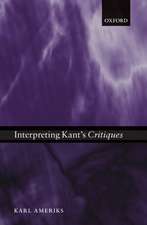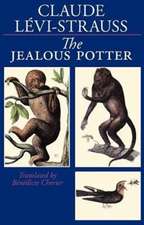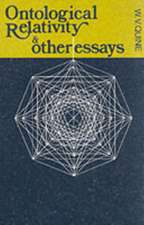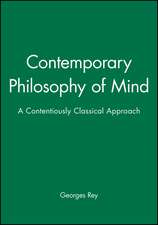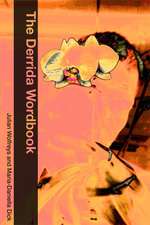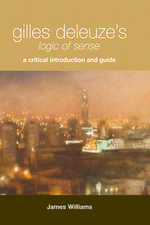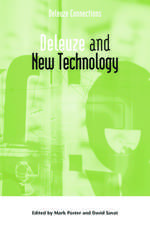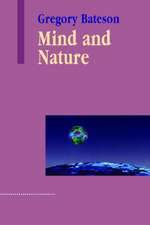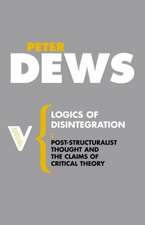Nietzsche, Heidegger, and the Transition to Postmodernity
Autor Gregory Bruce Smithen Limba Engleză Paperback – 7 feb 1996
Among the most influential and enigmatic thinkers of the modern age, Nietzsche and Heidegger have become pivotal in the struggle to define postmodernism. In this work, Gregory Smith offers the most comprehensive examination to date of the turn to postmodernity in the writings of these philosophers.
Smith argues that, while much of postmodern thought is rooted in Nietzsche and Heidegger, it has ironically attempted, whether unwittingly or by design, to deflect their philosophy back onto a modern path. Other alternative paths emanating from both Nietzschean and Heideggerian thought that might more powerfully speak to postmodern culture have been ignored. Nietzsche and Heidegger, Smith suggests, have made possible a far more revolutionary critique of modernity then even their most ardent postmodern admirers have realized.
Smith contends that the influences on the postmodern in the thought of Nietzsche and Heidegger are founded in a new vision of praxis liberated from theory. Ultimately, these philosophers do transcend the nihilism often found in the guise of postmodernism. Their thought is, moreover, consistent with the possibility of limited constitutional government and the rule of law. Smith's book takes the first step toward recovering these possibilities and posing the fundamental questions of politics and ethics in ways that have heretofore been closed off by late-modern thought.
Smith argues that, while much of postmodern thought is rooted in Nietzsche and Heidegger, it has ironically attempted, whether unwittingly or by design, to deflect their philosophy back onto a modern path. Other alternative paths emanating from both Nietzschean and Heideggerian thought that might more powerfully speak to postmodern culture have been ignored. Nietzsche and Heidegger, Smith suggests, have made possible a far more revolutionary critique of modernity then even their most ardent postmodern admirers have realized.
Smith contends that the influences on the postmodern in the thought of Nietzsche and Heidegger are founded in a new vision of praxis liberated from theory. Ultimately, these philosophers do transcend the nihilism often found in the guise of postmodernism. Their thought is, moreover, consistent with the possibility of limited constitutional government and the rule of law. Smith's book takes the first step toward recovering these possibilities and posing the fundamental questions of politics and ethics in ways that have heretofore been closed off by late-modern thought.
Preț: 265.82 lei
Nou
Puncte Express: 399
Preț estimativ în valută:
50.88€ • 52.43$ • 42.95£
50.88€ • 52.43$ • 42.95£
Carte tipărită la comandă
Livrare economică 03-17 martie
Preluare comenzi: 021 569.72.76
Specificații
ISBN-13: 9780226763408
ISBN-10: 0226763404
Pagini: 376
Dimensiuni: 152 x 229 x 36 mm
Greutate: 0.53 kg
Ediția:1
Editura: University of Chicago Press
Colecția University of Chicago Press
ISBN-10: 0226763404
Pagini: 376
Dimensiuni: 152 x 229 x 36 mm
Greutate: 0.53 kg
Ediția:1
Editura: University of Chicago Press
Colecția University of Chicago Press
Cuprins
Abbreviations
Ch. 1: Modernity, Postmodernism, and Beyond
Ch. 2: The Modern Longing: Protomodernity
Ch. 3: Modernity Deflected: Metaphysical Freedom and History
Ch. 4: Modernity's Codification and Closure: The End of History?
Ch. 5: Responses to Modern Closure: Reconciliation or Transcendence?
Ch. 6: The Protean Nietzsche
Ch. 7: The Critique: The Early Nietzsche
Ch. 8: The Transition: Zarathustra's Five Modes of Speech
Ch. 9: Zarathustra and the Dynamic of Transition: Epigones and
Interpretations
Ch. 10: The Future Possibility: After the Metamorphosis
Ch. 11: Nietzsche's Vision of the Postmodern Future
Ch. 12: Recovering Heidegger
Ch. 13: The "Early" Heidegger: Recovery and Deconstruction
Ch. 14: Being and Time
Ch. 15: The "Middle" Heidegger: Heidegger's Confrontation with Nietzsche
and the Turn to Seinsgeschichte
Ch. 16: Technology as the Culmination of Metaphysics
Ch. 17: The "Late" Heidegger: Mid-Course Corrections
Ch. 18: The Transition to Postmetaphysical Thinking
Ch. 19: From Eigentlichkeit to Gelassenheit: Poetry and Phenomenological
Openness to the World
Ch. 20: Variations on a Theme: Postmodern Elements in Heidegger's Teaching
Ch. 21: Unending Modernity or Postmodernity? Severing Theory and Praxis
Ch. 22: The Problem of "Nature": Beyond the Sublimation of the Political
Ch. 23: Dialectical Thinking: From the Phenomenology of Immediate
Experience to Poetry
Ch. 24: Letting the Future Present Itself: Constitutional Government and
Postmodernity
Selected Bibliography
Index
Ch. 1: Modernity, Postmodernism, and Beyond
Ch. 2: The Modern Longing: Protomodernity
Ch. 3: Modernity Deflected: Metaphysical Freedom and History
Ch. 4: Modernity's Codification and Closure: The End of History?
Ch. 5: Responses to Modern Closure: Reconciliation or Transcendence?
Ch. 6: The Protean Nietzsche
Ch. 7: The Critique: The Early Nietzsche
Ch. 8: The Transition: Zarathustra's Five Modes of Speech
Ch. 9: Zarathustra and the Dynamic of Transition: Epigones and
Interpretations
Ch. 10: The Future Possibility: After the Metamorphosis
Ch. 11: Nietzsche's Vision of the Postmodern Future
Ch. 12: Recovering Heidegger
Ch. 13: The "Early" Heidegger: Recovery and Deconstruction
Ch. 14: Being and Time
Ch. 15: The "Middle" Heidegger: Heidegger's Confrontation with Nietzsche
and the Turn to Seinsgeschichte
Ch. 16: Technology as the Culmination of Metaphysics
Ch. 17: The "Late" Heidegger: Mid-Course Corrections
Ch. 18: The Transition to Postmetaphysical Thinking
Ch. 19: From Eigentlichkeit to Gelassenheit: Poetry and Phenomenological
Openness to the World
Ch. 20: Variations on a Theme: Postmodern Elements in Heidegger's Teaching
Ch. 21: Unending Modernity or Postmodernity? Severing Theory and Praxis
Ch. 22: The Problem of "Nature": Beyond the Sublimation of the Political
Ch. 23: Dialectical Thinking: From the Phenomenology of Immediate
Experience to Poetry
Ch. 24: Letting the Future Present Itself: Constitutional Government and
Postmodernity
Selected Bibliography
Index


